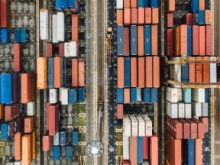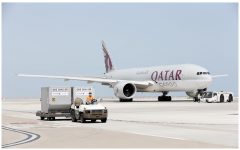 In a webinar on ATA & UN TIR Carnet with a focus on ‘facilitates free movement of goods across multiple international borders’, Sunil K Mall, Commissioner of Customs, Nhava Sheva, Mumbai, said, “TIR will facilitate intermodal transport and act as enabling document to cross multiple international borders without any additional checks. It will further help to improve trade between India, Central Asia & CIS countries.” While sharing his experience as the first TIR holder in India Shankar Shinde, Chairman-Elect, FFFAI, said, “Customs procedures in India should be further simplified under TIR to benefit large traders and exporters in India.”
In a webinar on ATA & UN TIR Carnet with a focus on ‘facilitates free movement of goods across multiple international borders’, Sunil K Mall, Commissioner of Customs, Nhava Sheva, Mumbai, said, “TIR will facilitate intermodal transport and act as enabling document to cross multiple international borders without any additional checks. It will further help to improve trade between India, Central Asia & CIS countries.” While sharing his experience as the first TIR holder in India Shankar Shinde, Chairman-Elect, FFFAI, said, “Customs procedures in India should be further simplified under TIR to benefit large traders and exporters in India.”
Raphael Hirt, IRU, Geneva, said, “The International Road Transport Union was very pleased to acknowledge the interest shown by Indian exporting industry towards the TIR procedure, especially the efforts made by CBIC, FICCI and FFFAI to promote this trade facilitation tool. IRU will continue to support all stakeholders involved in the implementation of TIR and its electronic version – eTIR in India. This will enable trade actors and Customs to benefit fully from the immense advantages provided by the TIR Convention which includes simplification of border crossing procedures, reduction of time and cost for the international movements of goods.”
ATA Carnet is a temporary admission document, which simplifies the customs procedures and clearances in a foreign country, without paying duty or a bank guarantee for temporary import into that country. Like a passport for goods, ATA Carnet allows for the goods for which it was issued to enter any of the participating countries for up to one year. An ATA Carnet holder can avoid customs declaration and can do away with security deposit or guarantee in the country of temporary importation.
TIR aims to facilitate the international transport of goods under customs seal with a maximum coverage. The system provides a guarantee covering the customs taxes and duties at risk which is required to pass transit countries and provides a balance between the responsibilities of the customs authorities and the international business community. It prevents delays in border crossing operations- by minimizing the formalities decreases the transportation costs, as a result, encourages the development of international trade.
 Cargo Breaking News
Cargo Breaking News


